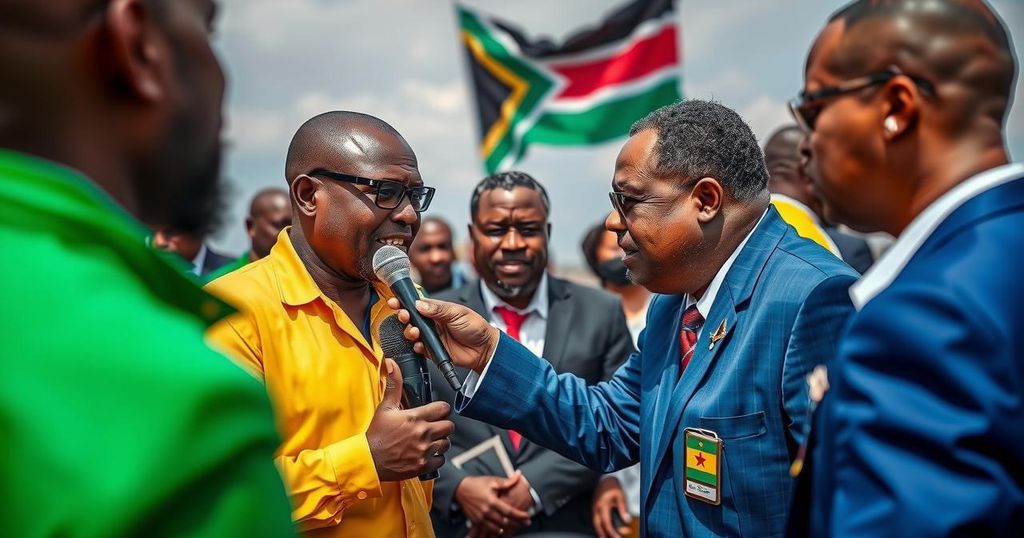The Namibian elections present significant challenges for SWAPO, which has ruled since 1990. The party experienced a decline in previous elections, losing key urban centers and its two-thirds majority. Political fragmentation among opposition parties hinders any unified challenge against SWAPO. Netumbo Nandi-Ndaitwah aims to become Namibia’s first female president, while figures like Panduleni Itula from the IPC emerge as contenders. The elections could signify a shift in political power dynamics.
In a highly competitive electoral environment, the South West Africa People’s Organisation (SWAPO), which has dominated Namibian politics since 1990, is facing unprecedented challenges as the country conducts presidential and parliamentary elections. While SWAPO maintains significant support in the northern regions, their recent electoral performance indicates a decline in strength, as evidenced by the loss of their two-thirds majority in 2019 and failures in local elections. Political analysts suggest that SWAPO’s continued success is largely due to a fragmented opposition that lacks a unified front, allowing them to leverage Namibia’s proportional electoral system. Netumbo Nandi-Ndaitwah, a seasoned political figure, is positioning herself as a candidate for the presidency, promising economic reforms and job creation. However, the rise of opposition figures such as Panduleni Itula from the Independent Patriots for Change (IPC) poses a potential threat to SWAPO’s dominance, although personal controversies and the challenges of presenting a cohesive opposition remain significant hurdles. As the political landscape evolves, the upcoming parliamentary elections could herald a shift in power dynamics, with new parties like Affirmative Repositioning (AR) also making their presence felt.
The political climate in southern Africa has witnessed a notable decline in the support for long-established ruling parties over the past year. SWAPO, which has presided over Namibia since its independence in 1990, finds itself at a precarious juncture as it competes against an increasingly fragmented opposition. Recent local elections indicated a weakening of SWAPO’s influence, compounded by the passing of former President Hage Geingob, which has opened the door to new leadership and potential shifts in electoral allegiance. Amidst this backdrop, political analysts are closely examining the dynamics that may shape the electoral outcomes, particularly focusing on the emerging opposition parties and their capacity to challenge SWAPO’s long-standing grip on power.
In conclusion, the upcoming elections in Namibia represent a critical moment for SWAPO as it seeks to navigate a landscape marked by declining support and a fragmented opposition. Netumbo Nandi-Ndaitwah’s candidacy could signify a pivotal shift in leadership and policy direction should she succeed. Meanwhile, the IPC and AR’s ascendance in the parliamentary race may lead to a recalibration of political alliances, potentially diminishing SWAPO’s dominance. As the electoral landscape unfolds, the outcomes will undoubtedly impact Namibia’s political trajectory and governance structure.
Original Source: www.dw.com






